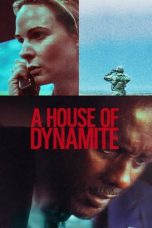Juice (1992) Review: A Gritty Exploration of Power and Betrayal
Juice, directed by Ernest R. Dickerson and released in 1992, is a powerful and gritty drama that delves into themes of power, friendship, and betrayal within the urban landscape of 1990s New York City. The film stars Omar Epps, Tupac Shakur, Jermaine Hopkins, and Khalil Kain, and is notable for its compelling performances and exploration of social issues.
Plot Summary
The story follows four friends from Harlem—Q (Omar Epps), Bishop (Tupac Shakur), Raheem (Jermaine Hopkins), and Steel (Khalil Kain)—who are navigating the challenges of their environment while seeking to assert their own sense of power and identity. The film begins with the group as they attempt to gain respect and assert their presence in the neighborhood through petty crime and other means.
As the friends become involved in increasingly dangerous activities, tensions rise, particularly between Q and Bishop. Bishop’s desire for power and respect drives him to take drastic measures, leading to a series of events that ultimately test the bonds of their friendship and push them towards a tragic climax. The film explores the consequences of their actions and the impact of their choices on their lives and those around them.
Performances
- Omar Epps as Q: Epps delivers a nuanced performance as Q, the character who struggles with the desire for respect and a better life while grappling with his conscience. His portrayal captures the internal conflict and vulnerability of his character.
- Tupac Shakur as Bishop: Shakur’s performance as Bishop is intense and commanding, showcasing his ability to portray a complex and troubled character. His depiction of Bishop’s descent into violence and madness is both compelling and memorable.
- Jermaine Hopkins as Raheem: Hopkins brings a sense of loyalty and vulnerability to his role as Raheem, adding depth to the group dynamic and the film’s emotional impact.
- Khalil Kain as Steel: Kain’s portrayal of Steel is grounded and sincere, providing a balanced and supportive presence within the group. His character’s struggles reflect the broader themes of friendship and survival.
Direction and Script
Ernest R. Dickerson’s direction is marked by its raw and realistic portrayal of urban life, capturing the gritty atmosphere of Harlem and the intensity of the characters’ experiences. The screenplay, written by Dickerson and Gerard Brown, is sharp and impactful, effectively conveying the film’s themes of power, loyalty, and the consequences of crime.
Cinematography and Style
The cinematography by Malik Hassan Sayeed is gritty and dynamic, using a mix of stark visuals and vibrant colors to capture the energy and tension of the story. The film’s visual style enhances its exploration of urban life and the characters’ emotional journeys.
Critical Reception
Juice received positive reviews for its powerful performances, particularly by Tupac Shakur, and its authentic depiction of urban life. The film was praised for its exploration of themes related to power and friendship, as well as its ability to convey the harsh realities faced by its characters. While some critics noted that the film’s portrayal of violence and crime might be intense, it was generally appreciated for its raw and impactful storytelling.
Where to Watch “Juice” Online
For those interested in watching Juice, the film is available on several streaming platforms and services:
Streaming Services
- Amazon Prime Video: Available for rental or purchase, offering various quality options.
- Apple TV: Provides the film for rental or purchase, ensuring high-definition streaming.
- Google Play Movies & TV: Offers options to rent or buy Juice, catering to Android users and Google account holders.
- YouTube Movies: Allows viewers to rent or purchase the film, similar to other services.
Rental and Purchase Options
Most platforms offer flexible rental and purchase options, with prices varying based on quality and format.
Conclusion
Juice is a powerful and gritty film that offers a raw and impactful exploration of power, friendship, and the consequences of crime. With strong performances from Omar Epps and Tupac Shakur, and Ernest R. Dickerson’s effective direction, the film remains a significant and compelling portrayal of urban life and the challenges faced by its characters. Its exploration of themes related to respect, betrayal, and survival continues to resonate with audiences.
















